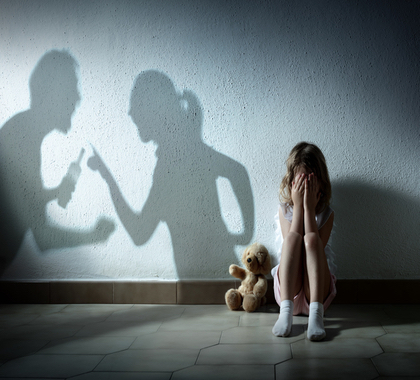California’s movement to screen children for “toxic stress” began in January 2019 when California Governor Gavin Newsom included $45 million for the initiative in his budget proposal. California is the first state to create a formal reimbursement strategy for ACEs screening.
Dr. Nadine Burke Harris, who was named California’s first surgeon general in February 2019, spearheaded the effort to implement the screening. Dr. Burke Harris stated her goal is to implement universal stress screenings for all children as part of their regular physical exams. The ACEs screening will impact roughly 5.3 million children, or 40 percent of all of California’s children.
For children under the age of 12, parents or caregivers are asked to fill out state-approved questionnaires about potential stressful experiences in a child’s life. For children between 12-19, both parents and the children will be asked to complete questions about ACEs. The California Department of Health Care Services will pay Medi-Cal providers $29 for each trauma screening they conduct for adults and children enrolled in Medi-Cal. By July, Medi-Cal providers must self-attest that they have been trained in ACEs screening.
Screening a child for toxic stress involves asking a parent to count how many of the following 10 issues a child has encountered: physical, sexual or emotional abuse, physical or emotional neglect, a parent’s mental illness, substance dependence, a parent’s incarceration, parental separation or divorce and domestic violence. Each one results in a point, and the higher the score, the higher the risk that the child has unhealthy stress levels. ACEs screening could also subject teens to questions about topics such as divorce, family income, and unstable household environments.
Toxic Screening
Twila Brase, president of the Citizens’ Council for Health Freedom (CCHF), said in a press release that the more toxic issue is the screening itself.
“What’s truly toxic about this is the government’s push to intrusively categorize, evaluate, and survey children and their families,” Brase said. “The screenings are voluntary, but parents and children may feel coerced or pressured to fill them out.”
Brase says she is concerned about the privacy of children as the responses to the questionnaires could be entered into their electronic health record.
“California is acting first, then asking questions later,” Brase stated. “The collection and storage of this information is not without risk—and the damage could be irreversible.
“This information will be a part of every child’s ‘cradle to grave’ electronic health record, which is evolving into a comprehensive ‘dossier’ on the child. What goes in these electronic health records rarely ever comes out,” Brase stated. “Therefore, as California builds complete profiles of children and their families, this could have serious implications as children age. It could stigmatize and create labels that these children will never be able to escape, even in adulthood.”
Also wary of the consequences is Jane Orient, M.D., executive director of the Association of American Physicians and Surgeons. “This sounds like an invitation to get child protective services involved in every home,” said Orient. “That could mean more money having to be spent on foster care programs, huge legal bills and permanent underserved stigma to parents. Nosy-body sounds far too benign.”
Kelsey E. Hackem ([email protected]) writes from Washington state.




